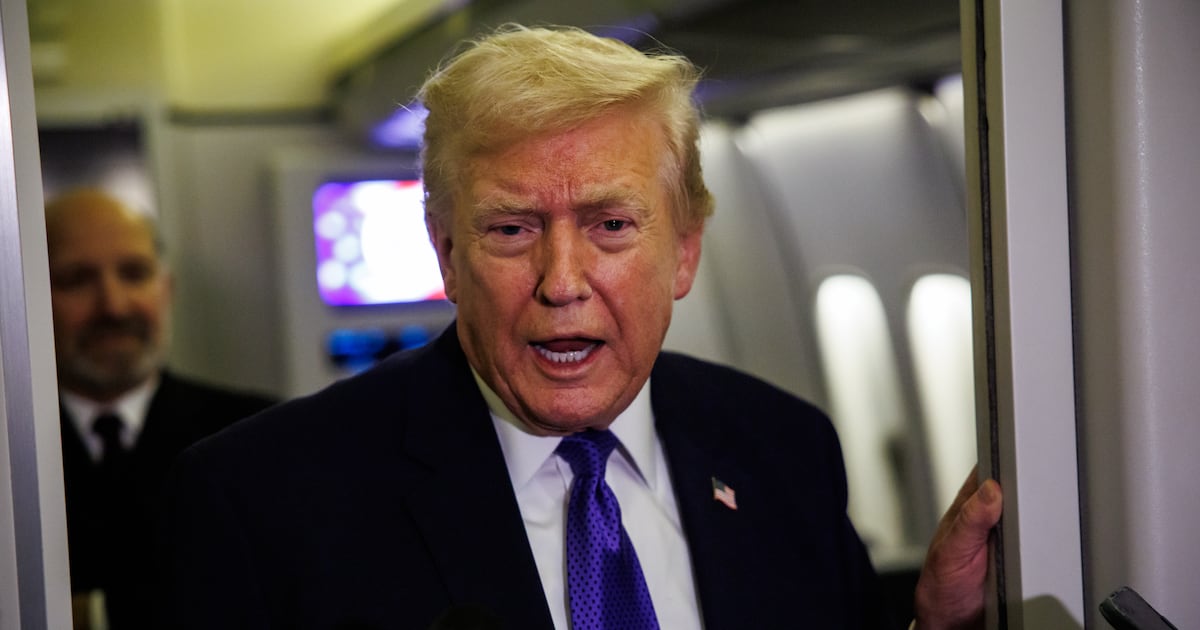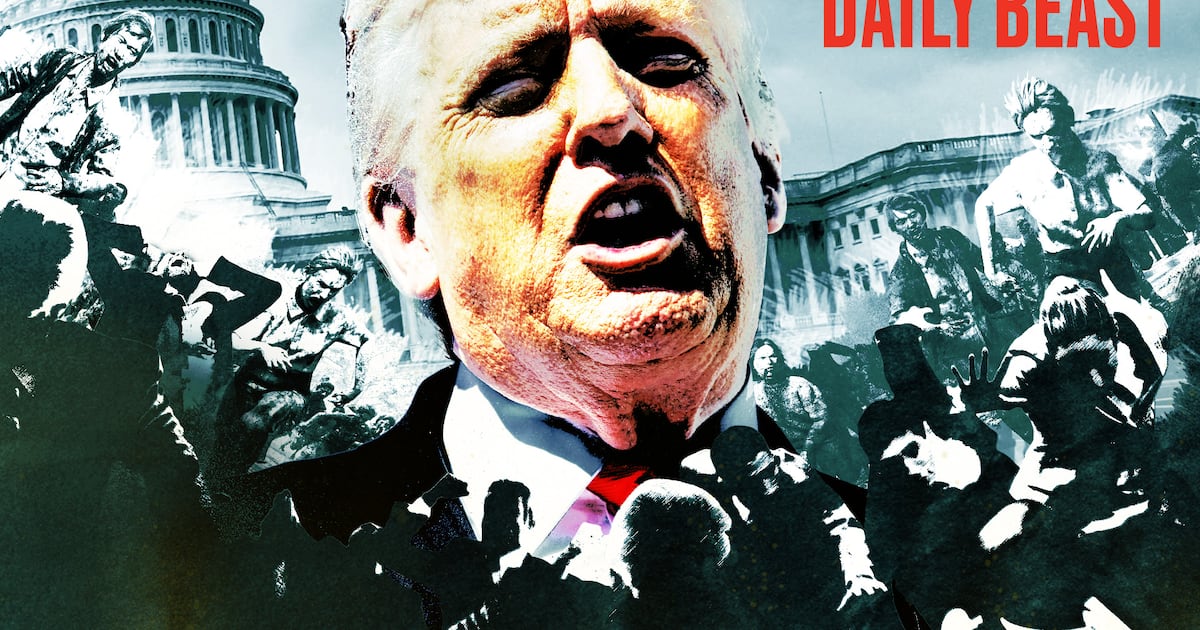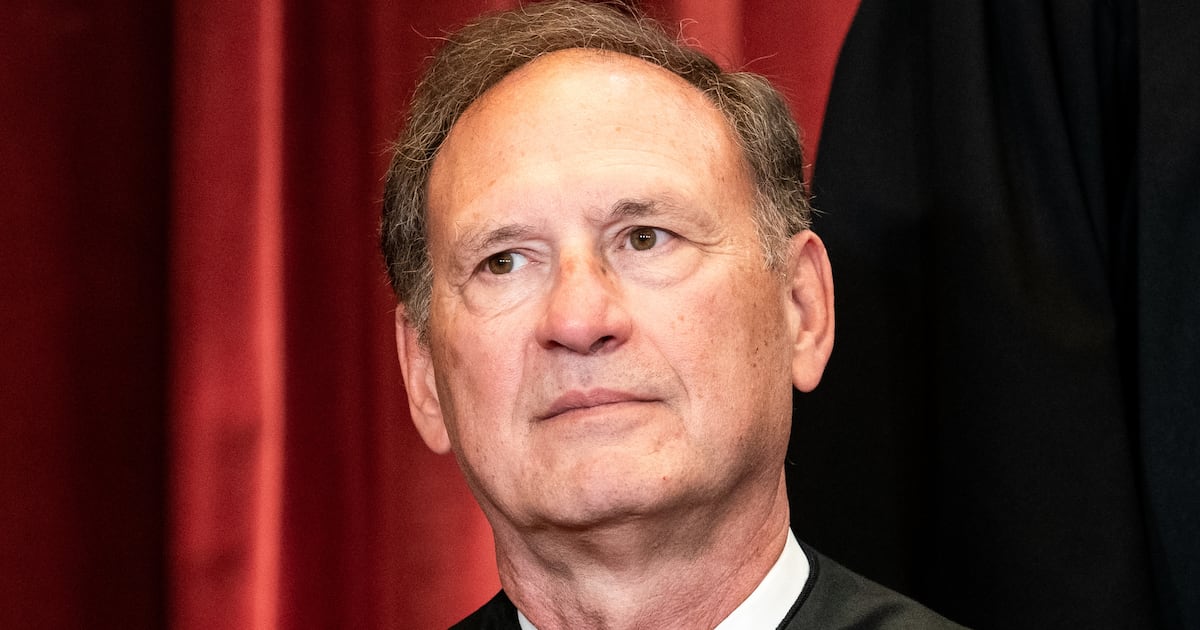NORTH CHARLESTON, South Carolina—Jaime Harrison’s path to victory against Sen. Lindsey Graham lies along a roughly 20-mile stretch of road in South Carolina’s Lowcountry.
The small town of Hollywood, where Harrison made the first of three campaign stops the Sunday before the Nov. 3 election, is tucked into a thick of woods that’s barely 30 minutes from Charleston but feels much farther away. In a field outside a community center, the Democratic candidate for U.S. Senate took to the stage, flanked by banners for Democratic nominee Joe Biden, to warm applause from a largely Black, elderly audience.
After rebuking Graham for allegedly losing focus on the issues important to this community—access to good hospitals, schools, and broadband—he had a blunt message: “This is our mission: You got about two days left, if you have not voted yet, we need you to go vote,” he said. “Go. Don't wait until Tuesday. Go on and get it done right now.”
“That niece and nephew of yours, aunt and uncle, sometimes even the grandma and grandpa, who said, you know, I'm just a little too busy, I got so much to do at work. I gotta go get my hair done… Get it done on Wednesday,” said Harrison, to cheers. “On Tuesday, it’s clean-up day, y’all.”
About an hour later, Harrison stepped off his bus in a field on the banks of the Ashley River in the city of North Charleston, where a “drive-in” rally of a few dozen cars, bringing with them a largely white crowd, honked their horns enthusiastically when Harrison took the stage.
Here, the candidate’s message on voting—do it like your life depends on it—hit the same beats but Harrison went harsher against his opponent, and quicker. “I think he is a relic of 1950,” he said, to honking horns from cars decked out with mock signs saying Graham was “for sale.”
“Because my friends, what we are about to do in this race is close the book on the Old South,” he said, “and write a new book called the New South.”
When Harrison decided last year to mount what seemed like an improbable challenge, he bet that he could convince voters that Graham had changed in important ways—that his allegiance to Donald Trump eroded the integrity he once was respected for in Washington as well as back home. But he also bet that the state itself had changed over Graham’s three decades on Capitol Hill, and has left him behind.
So Harrison, a South Carolina native and savvy Democratic political hand, set out to build an operation meant to turn out every single Democrat—overwhelmingly the party of Black voters here—and introduce himself to every independent and Republican, too.
Many months, and over $108 million raised, later, you can’t turn on a TV, watch a YouTube video, listen to the radio, or drive down a highway in the state of South Carolina without seeing Harrison’s name and face. A race that was once seen as uncompetitive is now regarded as a toss-up. In a matter of hours, Democrats will find out if the gambit worked.
“We executed our strategy to the best of our abilities,” Harrison told The Daily Beast in an interview after addressing voters in North Charleston, saying that his campaign brought presidential-level campaign organizing to a state that had never seen anyone but a presidential candidate achieve it.
He also alluded to Vice President Mike Pence’s visit to South Carolina last week to stump for Graham as a sign that the GOP is deeply worried.
“It says you understand you’re on the verge of losing,” said Harrison. “Listen, it doesn't matter if he brings Trump, or Pence, it doesn't matter because the people in South Carolina are hungry for change.”
If that change comes, there were signs of it in Harrison’s crowds on Sunday. They were not overwhelming in size, but attendees spoke of a high degree of enthusiasm across various communities and demographics in the state to vote Graham out.
Kellye Whitaker, who attended the rally in Hollywood but lives in North Charleston, said the stakes not only of the Senate race but the White House race, too, were “scary” because of their sheer importance. She echoed a point that Harrison and his allies have often made: that South Carolina Democrats may have liked or even supported Graham in the past, but that his close alliance with President Trump and focus on stocking the judiciary with conservatives has changed him.
“He’s lost a lot of support,” said Whitaker, who is Black. “Everyone wants a change.”
In North Charleston, Stephen and Bree Peregoy, both 26, stood outside their SUV after Harrison and Rep. Joe Cunningham (D-SC), a first-term Democrat in a tough race in South Carolina’s 1st District, spoke at the drive-in rally. The Charleston residents are transplants from elsewhere who moved for work but “fell in love” with the state—an increasingly common sight here—and both are enthusiastically backing Harrison, who they appreciate as a fresher face.
“The simple fact is, his word has come to mean nothing,” Stephen said of Graham, who he called a “yes man” for Trump’s agenda. “What does he stand for?”
But a simple fact of South Carolina’s electoral math is a major hurdle for Harrison: even if Democrats turn out in overwhelming numbers from Hollywood to North Charleston, and even if he makes real inroads with independents and center-right voters in other parts of the state, Trump supporters are still an unavoidable part of the equation here.
The president is very popular here—he won in 2016 by 300,000 votes and is all but certain to carry it this year—and Graham is hugging him close.
An Oct. 15 poll of South Carolina from the New York Times found Trump leading Democratic nominee Joe Biden by 8 points, 49 percent to 41 percent. The poll also found Graham leading Harrison by 6 points, 46 percent to 40 percent.
According to the poll, 12 percent of Black voters were undecided, representing ground for Harrison to make up. But Trump’s support among key voting demographics is far higher than it is in neighboring battlegrounds like North Carolina; he leads Biden by 12 points among white, college-educated voters. That’s a major boost for Graham.
As he warmed up the crowd, Rep. Jim Clyburn (D-SC)—the dean of South Carolina Democratic politics and Harrison’s political mentor—seemed to acknowledge the idiosyncratic ballots that may have to be punched in order for Harrison to win. Clyburn said he was at the golf course recently and came across a man with a Trump flag on his truck. “Don’t worry,” Clyburn said the man told him. “I’m supporting your man Harrison.”
Harrison says these voters do exist. “One thing that I learned in politics is, all politics are local,” said Harrison. “I support Joe Biden for president, but, you know, when I'm in Washington, D.C., I'm gonna represent everybody.”
But to win, the Democrat will also need Graham’s weakness—his historically uneasy relationship with the hardcore GOP grassroots—to come back and haunt him, in the form of Trump supporters skipping the Senate line of their ballot. While there are strong indications these voters will back Graham, the recent New York Times poll found 11 percent of Republicans aren’t supporting him—a margin that could prove significant in a close race.
To that end, Harrison and his allies are also exploiting a newer weakness for Graham: third-party candidate Bill Bledsoe. A hard-line conservative, Bledsoe dropped out of the race and endorsed Graham, but did not exit quickly enough to get his name off the ballot.
In an eleventh-hour media blitz, Harrison’s campaign is elevating Bledsoe in ads by attacking him as too conservative—but in doing so, the would-be attack ad offers up right-wing voters a laundry list of things to like about him, namely his unwavering support of Trump. And the Lincoln Project, the anti-Trump PAC, ran ads calling Bledsoe “the real deal” for South Carolina.
Bledsoe has called these ads fraudulent; Graham has slammed the play as a dirty trick that smacks of desperation from Harrison. Asked by The Daily Beast about whether the ads were dishonest, Harrison questioned why Bledsoe didn’t officially drop out earlier.
“Listen, he’s on the ballot,” said Harrison. “People can vote for him. I'm on the ballot. Lindsey Graham's on the ballot. That means, at the end of the day, that people can vote for any of those folks. I'm old enough to remember, third-party candidates can help determine an election.”
Few in South Carolina can recall a race as fiercely contested and hard to escape as the contest between Harrison and Graham. Part of that can be chalked up to the reality of politics in 2020, in which a candidate like Harrison is able to raise tens of millions from small-dollar donors around the country via the fundraising platform ActBlue.
But it’s been a long time since voters here can credibly say they are one of just a handful of states that could decide control of the Senate majority. Early voting in South Carolina has shattered records; over 1.25 million have voted so far, dwarfing the 500,000 who had voted early in 2016.
Issues with long lines and absentee voting procedures in other states, magnified by the COVID-19 pandemic, are present in South Carolina, too, as the Senate race here gets national play. Over the weekend, voters lined up for hours in precincts around the state to have their voices heard. Many more are expected to vote in person on Election Day this Tuesday.
“These long lines aren't a good thing. It's a form of suppression,” Harrison told The Daily Beast. “That means we haven't done what we need to do in order to prepare.”
Harrison also alluded to the possibility that thousands of absentee votes could get tossed if a voter’s signature on their mail-in ballot does not match the one on file. Last week, a federal judge ordered that South Carolina counties cannot reject ballots out of hand due to signature mismatches, and must offer voters a chance to remedy any discrepancies should they come up.
If Harrison pulls off a victory this week, he will need every last variable to go his way—from the corridor between Hollywood and North Charleston to how the larger-than-life figures at the top of the ticket are received across the state.
A candidate Harrison stumped for on Sunday, Cunningham, can claim some familiarity with that dynamic. In 2018, he shocked political observers by winning an open-seat race in a district Trump carried by 13 points and that was once held by former South Carolina Gov. Mark Sanford, the former darling of the conservative right.
The 38-year old former ocean engineer pulled off the win with a relentless focus on local concerns—particularly environmental issues, which are inescapable in the coastal Lowcountry.
“My neighbors had the [Trump] sign in their front yard, but they supported me,” Cunningham told The Daily Beast. “They recognize that this idea of us versus them, red state versus blue state… we need to choose a person who’ll put people over politics.”
“Otherwise,” said Cunningham, “it just misreads it.”







